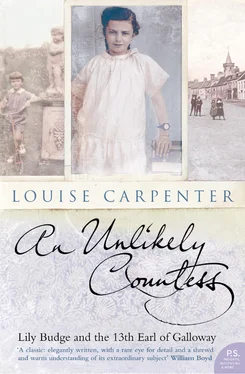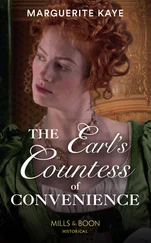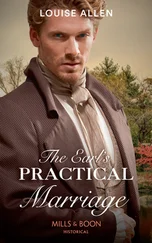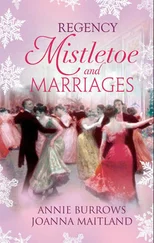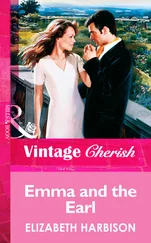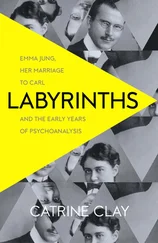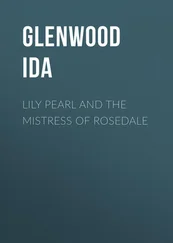The Prime Minister, Sir Winston Churchill, one of Harrow’s most famous old boys, descended on the school for what was the fourth of his by then annual visits. Mr and Mrs Moore held a reception for him in the Old Harrovians’ Room, after which he was entertained with a programme of Harrow songs in Speech Room. He then delivered his rousing speech to the school, intended to inspire future generations of soldiers. The path of the war was hard and long, he told them, with no fixed end. ‘However long, however hard, we shall go forward, and no one can tell at what moment the resistance of the enemy may break, but that is not our affair; that is theirs; that is for them.’ He talked of the great responsibility that awaited Britain when the moment of victory came, of the duty and the ‘burden of shaping the future’. Towards the end of his speech, Churchill delivered a message Randolph had heard countless times before, only spoken from different lips:
You young men here, some of you may be in the battlefields or in the high air, others will inherit, will be heirs of the victory which your elders and your parents have gained, and it will be for you to make sure that what has been achieved is not cast away either by the violence of passion or by apathy or by sheer stupidity. But let keen vision, courage, and humanity guide our steps so that it can be said of us that not only did our country do its duty in the war in a way which gained lasting honours, but that afterwards in the years of peace it showed wisdom, a poise and sincerity which contributed in no small degree to binding up the frightful wounds inflicted by the struggle.
In Randolph’s corner the rally cry fell on stony ground. It was not ‘the violence of passion’ or ‘apathy’ or ‘sheer stupidity’ that made him so incapable of stepping into the boots of his predecessors. It was more that the boots did not fit and were becoming more and more uncomfortable. Randolph’s fear of war intensified, with good reason. In the early hours of Ash Wednesday, 22 February 1944, the school suffered a disastrous raid. A bomb hit the Old Harrovians’ Room, where Churchill had been received three months earlier, and there were four fires in the east wing of the Old Schools. The chapel was hit, setting the canopy alight. The science schools, the Butler Museum and the school stores were all ablaze. The wooden ventilator on the roof of Headmaster’s (a boarding house) was set alight, too, and the flames were so strong that only firemen could put them out. The Grove was hit, as was Moreton’s and Malvern School House. While the boys remained below ground in their shelters, parties of masters tried to bring each blaze under control, while others combed the buildings looking for more bombs. A bomb on the chapel stalls burnt itself out and two bombs were found in the gymnasium. Bombs covered the five courts and one had blown a hole near the squash court.
Randolph was in a state of high agitation. The school itself, however, remained strong under threat. Typically, by 9 a.m. the next morning, the holes in the terrace lawn had been neatly turfed over so that there was no sign of the events of the night before. Unexploded bombs were being loaded into wheelbarrows, tarpaulin had been laid over part of the roof of the school stores, and the chancel cleared up. The boys were given an extra hour in bed and then lessons went on as usual.
The following month Lord Galloway arrived at Harrow and took Randolph out to tea. The school stores were not yet restored so they went to the King’s Head instead. Lord Galloway had been told of Randolph’s unpopularity – often at breakfast the boys in the Grove sniggered at him and said, ‘Give the weed some milk and sugar’ – and once again he wanted to try and make his son see sense. He lectured Randolph on the importance of being social and cheerful. ‘Does it matter?’ Randolph responded. ‘Yes, it does matter!’ replied Lord Galloway.
One advantage of Harrow was that after the first year every boy was given a room of his own, with a coal fire and a wooden bed which let down from the wall. The boys were allowed to furnish the rooms as they wished. It was a domestic improvement, but in Randolph there was no improvement at all. Towards the end of June, escorted by the Grove’s matron, Randolph boarded a train to London for a consultation with one of the many psychologists to feature in his life.
Cumloden continued to receive southern relatives. Lady Galloway’s sister arrived (she had been thrown to the ground by the fallout of a doodlebug) as did Mrs Francis Jolliffe Raitt and her sister, Aunt Agatha, an ancient lady who repulsed Randolph and had ‘the silver stubble of a greying beard beneath her ancient mouth’. After the war-torn landscape of suburban London, with its plumes of smoke and buildings with blown-out, charred windows, Cumloden during the holidays was an even greater relief. Randolph loathed the city – this never changed – and being able to walk through the deer park restored his spirits in a way his masters never could. Towards the end of the summer of 1944 Lord Galloway made an announcement. If he saw no improvement in Randolph’s attitude, he would be leaving the school at Christmas. Nothing could have pleased Randolph more. As the new chauffeur drove him out of the gates in the family Rolls, headed for the station, the gamekeeper appeared from the front lodge and cried after him ‘Good luck Lord Garlies!’
‘I was ill at ease, upset and unhappy,’ Randolph wrote of his return. That term he began seeing a psychologist in south Harrow. He was getting used to being asked questions by strange doctors, and he made his way to his first appointment in the slashing rain on his own. He returned dazed (in his memoirs there is no explanation of why this was; perhaps he had been medicated). He then began to wander about in a disorientated fashion, alarming matron. The sirens continued to sound. Randolph sheared off his eyebrows with a pair of scissors, creating for himself a most curious expression: ‘Harrow boys noticed that I had discarded my eyebrows, how silly I looked …’ He also became obsessed with having his hair cut at the local barber’s; he deliberately sat on the lavatory – ‘the throne’ – back to front; and when faced with normal chairs, he perched on their edges with a poker-straight back, a peculiarity that made it into his school report and which Lord Galloway observed ‘must be awfully uncomfortable’. Two days after Randolph’s sixteenth birthday, he went back to the psychologist: ‘I told him exactly how I felt, that I was being spied upon and watched, followed and criticized by members of the school, especially boys.’
One of Harrow’s master’s, Sergeant Major Robert Banks, who clearly had a poor grasp of Randolph’s emotional state, told him that if he wished to join the army, he would have to tighten his shoe straps and behave the way any normal recruit would behave. Then on 1 December, Sir Winston Churchill arrived at the school again to deliver his fifth wartime speech, reminding Randolph once more of all his failings:
Now that we are marching into a period of great stress, of difficulty, now that you will go forward into a world where the problems will be made greater by the victories which have been and will be won, where duty will become more compulsive because of the need to live up to what has happened in the past, now at this time, I say, you give to me, by your voices and by your aspect, that feeling that there will never lack a youth of Britain capable of facing, enduring, conquering everything in the name of freedom and for the sake of their dear, loved native land.
Confirmation that he was leaving Harrow came at the beginning of December in a letter from his father. In the New Year Randolph would go to live at The Rough, the Surrey residence of Lord Galloway’s relative, Shane Randolph Chichester. There, it had been decided, as Randolph recorded later, he would ‘do navvying manual jobs … to overcome this sensation of inferiority complex’. His health had become the concern of the whole family. Even Randolph’s kind Aunt Catherine, who came to visit, gave him a talk about how he should focus on being an asset in life.
Читать дальше
